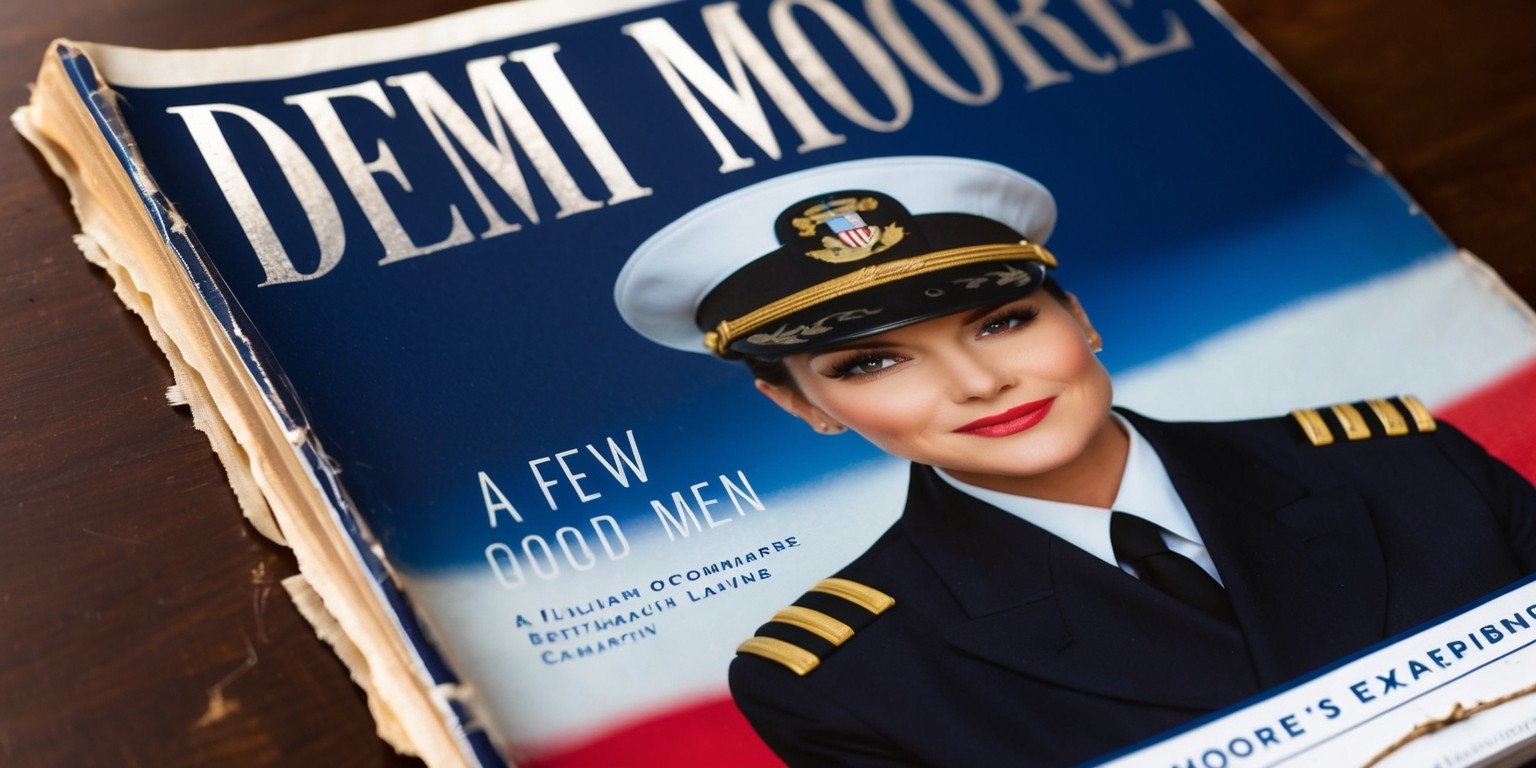Breaking Boundaries: Demi Moore's Fight for Authentic Female Representation in Hollywood
The film industry has long been a reflection of societal values, shaped by trends, norms, and the intentions of those in power. While the polished images of Hollywood often hide the intricacies of its inner workings, controversies arise that challenge the existing conditions and offer perspective on the evolution of representation and ethics in filmmaking. One such instance emerged from the 1992 classic, A Few Good Men, where an experience involving Demi Moore exposed cultural dynamics and gender perceptions still relevant today. This article delves into the details surrounding Demi Moore's experience with a studio executive's controversial demands, alongside her reflections on the broader implications for women in Hollywood.
Demi's Role in A Few Good Men
A Few Good Men is celebrated not only for its captivating storyline, in addition to the performances of its leading actors. Demi Moore stepped into the role of Lieutenant Commander Joanne Galloway, a compelling character whose strength challenges traditional gender roles within a military context. Opposite Tom Cruise, who portrayed Lieutenant Daniel Kaffee, the film explores themes of justice, truth, and integrity.
The Controversial Proposal
While the story’s focus was on legal drama and the pursuit of truth, behind the scenes, the project became embroiled in an unsettling demand. A studio executive believed that adding an intimate scene between Moore and Cruise would elevate the film's appeal. This misguided notion highlighted the entrenched sexism prevalent in Hollywood at the time.
Recording the Remark
In a vivid revelation, Moore recalled a conversation where the executive bluntly suggested that her casting was, in part, justified only if her character engaged romantically with Cruise. “Well, then why did we hire Demi Moore?” the executive reportedly questioned, signaling a disheartening attitude towards the role of women in film.
Sorkin's Stand Against Sensationalism

The Evolution of Women's Representation
As Moore reflected on the situation, she pointed out that the mindset of the industry was shaped by decades of conditioning, where such exploitative ideas were normalized. This acceptance led to a troubling standard that filmmakers would often follow, marginalizing women's stories and voices.
Modern Progress Yet Historical Context
Despite the troublesome past, Moore expressed optimism regarding the shifts occurring within the industry. “We’ve actually come an enormous distance,” she stated, recognizing both the progress and the road yet to be traveled. The slow evolution in Hollywood's attitudes toward gender equity is observable but requires ongoing scrutiny.
Constructive Moving Forward
Moore advocated for a forward-thinking approach, emphasizing the importance of acknowledging past mistakes without succumbing to despair. “It doesn’t make it OK, but we are unable to strike with a hammer over it,” she wisely advised. Emphasizing collective action, she urged industry professionals to work towards constructive solutions.
Beyond A Few Good Men
In her upcoming projects, Moore demonstrates her commitment to roles that break traditional molds. One such project is The Substance, a body horror film demonstrating her range as an actress and her refusal to be boxed into stereotypical roles.
A Look Ahead: The Substance
The Substance promises to be a thrilling addition to Moore's filmography, featuring fellow actors Margaret Qualley and Dennis Quaid. This film, which premiered at the prestigious Cannes Film Festival, reflects not only genre diversity but also a narrative ripe with intrinsic complexity and depth.
The Critical Reception and Anticipation
The critical praise received at Cannes indicative of the film's potential sets an exciting tone for its upcoming release on September 20, 2024. The film industry’s ability to allow actors like Moore a chance to portray multifaceted and challenging characters heralds a hopeful future.
Availability of A Few Good Men
For those looking to revisit the compelling themes presented in A Few Good Men, the film remains available for rent or purchase on platforms like Amazon Prime Video. This timeless narrative, enriched with ethical dilemmas and interpersonal relationships, remains a relevant commentary on justice and male-female dynamics.
The Implications Beyond the Screen
In reflecting on her experiences and the evolution of the film industry, Moore illuminates the larger societal implications of gender roles and the representation of women in media. These discussions extend beyond Hollywood, allowing audiences to consider how they perceive gender in various contexts.
Conclusions on Changing Narratives
The demand for a sensationalist approach that objectifies female characters is a practice that needs critical examination. By sharing her experiences, Demi Moore advocates for a lasting change in the narrative structures that dominate the film industry, encouraging a shift towards authenticity and respect for women’s experiences.
Moving Towards a Diverse Representation
As the industry continues to evolve, it bears the responsibility of fostering diverse representation that resonates with audiences and reflects true stories. By embracing characters with depth, the narratives can inspire and empower, leaving behind outdated tropes that overshadow the importance of individuality and character development.
In summary, Demi Moore's experiences with Hollywood's antiquated ideologies serve as both a cautionary tale and a testament to progress. The film industry must continue to grow and adapt, forging paths that champion the richness of human stories—especially those of women.


Comments 0
Leave a reply
Tell us what do you think about this review. Your email address will not be published.
Your comment is awaiting moderation. We save your draft here